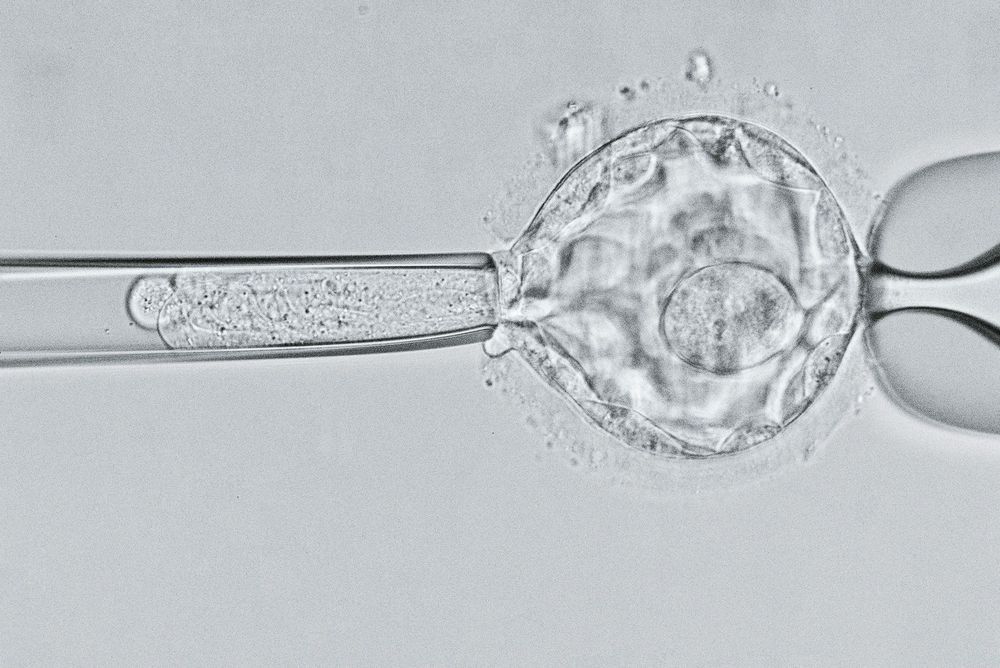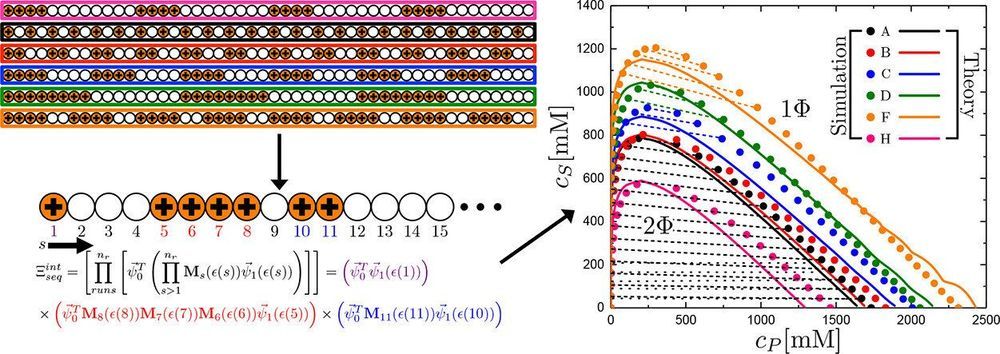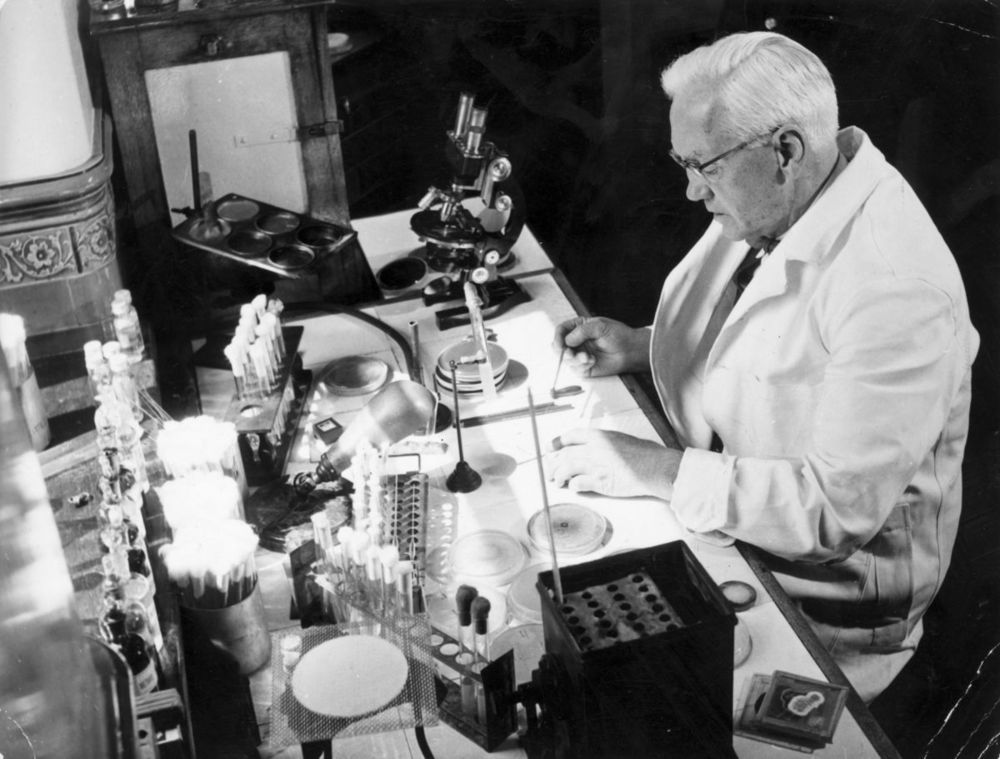Page 8747
Jun 3, 2019
Something’s Hiding in Our Outer Solar System, But It Might Not Be Planet Nine
Posted by John Gallagher in categories: physics, space

Somewhere in the outer reaches of the Solar System, beyond the orbit of Neptune, something wonky is happening. A few objects are orbiting differently from everything else, and we don’t know why.
A popular hypothesis is that an unseen object called Planet Nine could be messing with these orbits; astronomers are avidly searching for this planet. But earlier this year physicists came up with an alternative explanation they think is more plausible.
Continue reading “Something’s Hiding in Our Outer Solar System, But It Might Not Be Planet Nine” »
Jun 3, 2019
Physicists can predict the jumps of Schrodinger’s cat (and finally save it)
Posted by Genevieve Klien in categories: particle physics, quantum physics
Yale researchers have figured out how to catch and save Schrödinger’s famous cat, the symbol of quantum superposition and unpredictability, by anticipating its jumps and acting in real time to save it from proverbial doom. In the process, they overturn years of cornerstone dogma in quantum physics.
The discovery enables researchers to set up an early warning system for imminent jumps of artificial atoms containing quantum information. A study announcing the discovery appears in the June 3 online edition of the journal Nature.
Schrödinger’s cat is a well-known paradox used to illustrate the concept of superposition—the ability for two opposite states to exist simultaneously—and unpredictability in quantum physics. The idea is that a cat is placed in a sealed box with a radioactive source and a poison that will be triggered if an atom of the radioactive substance decays. The superposition theory of quantum physics suggests that until someone opens the box, the cat is both alive and dead, a superposition of states. Opening the box to observe the cat causes it to abruptly change its quantum state randomly, forcing it to be either dead or alive.
Continue reading “Physicists can predict the jumps of Schrodinger’s cat (and finally save it)” »
Jun 3, 2019
First gene-edited babies may be at risk of early death
Posted by Genevieve Klien in category: genetics
In 2018, a Chinese researcher shocked the world by announcing the birth of two gene-edited babies. The mutations may have hurt, not helped.
Jun 3, 2019
Obesity Might Accelerate Aging
Posted by Steve Hill in categories: biotech/medical, life extension
The researchers of a new publication take a look at the effects of obesity on aging and consider its impact in the context of the Hallmarks of Aging, a popular theory that breaks down aging into nine distinct processes.
The case for obesity accelerating aging
Being overweight and carrying excessive amounts of visceral fat, a type of body fat that is stored in the abdominal cavity and surrounds a number of important internal organs, such as the liver, pancreas, and intestines, is known to increase the risk of age-related diseases.
Jun 3, 2019
Microsoft’s New Windows 10 Upgrades: A Serious Warning
Posted by Fyodor Rouge in category: futurism
Microsoft Windows 10 users, you have a serious upgrade problem which you need to know about…
Jun 3, 2019
Researchers can now predict properties of disordered polymers
Posted by Genevieve Klien in categories: engineering, physics
Thanks to a team of researchers from the University of Illinois at Urbana-Champaign and the University of Massachusetts Amherst, scientists are able to read patterns on long chains of molecules to understand and predict behavior of disordered strands of proteins and polymers. The results could, among other things, pave the way to develop new materials from synthetic polymers.
The lab of Charles Sing, assistant professor of chemical and biomolecular engineering at Illinois, provided the theory behind the discovery, which was then verified through experiments conducted in the lab of Sarah Perry, assistant professor of chemical engineering at UMass Amherst, and Illinois alumna. The collaborators detailed their findings in a paper titled “Designing Electrostatic Interactions via Polyelectrolyte Monomer Sequence” published in ACS (American Chemical Society) Central Science.
The colleagues set out to understand the physics behind the precise sequence of charged monomers along the chain and how it affects the polymer’s ability to create self-assembling liquid materials called complex coacervates.
Continue reading “Researchers can now predict properties of disordered polymers” »
Jun 3, 2019
The Longevity Book Club
Posted by Steve Hill in categories: biotech/medical, ethics, life extension
We are pleased to announce the launch of the Longevity Book Club hosted by LEAF Director Javier Noris, where you can join other longevity enthusiasts in reading the most interesting works that relate to our mission of ending age-related diseases.
You will also get the opportunity to listen to discussion panels and take part in Q&A sessions that are focused on books that touch on these important scientific, philosophical, moral and futuristic longevity topics. This is the ideal place to meet like-minded longevity enthusiasts who are working on building their knowledge on longevity and all of the implications that come with ending age-related diseases.
Jun 3, 2019
Science Was Never Unique to the West
Posted by Derick Lee in categories: energy, science
This pugnacious antipathy toward scientists, research funding and universities threatens to undercut the very advantages that have made the U.S. such a dominant technological power over the last century. Just as Hasan Ibn al-Haytham’s achievements draw a sharp contrast with the Middle East’s current lagging position in science, sepia-colored nostalgia for Isaac Newton will ring bitterly hollow if the West turns away from Newton’s legacy. A civilization is only as great as its last failure.
It’s absurd to claim otherwise — especially now, as America turns away from Newton’s legacy.
Jun 2, 2019
Biologist targeted for exposing the gender bending pesticide
Posted by Ian Hale in categories: biotech/medical, food, sustainability

Biologist, Tyrone Hayes is a soft-spoken professor at the University of California with a big message. One of the most commonly used pesticides in agriculture, atrazine, is responsible for feminizing amphibians, according to his research. More importantly, the chemical is effectively eliminating male chromosomes at an alarming rate, at levels which are three times lower than what are currently appearing in our drinking water. It isn’t just lead and fluoride we need to be concerned about, but a known endocrine disruptor, created by Syngenta, that is utterly changing our gene pool.
Hayes has been fighting Syngenta, to report the harmful effects of Atrazine for decades now. His scientific papers describe how Atrazine demasculinizes male gonads producing testicular lesions associated with reduced germ cell numbers in teleost fish, amphibians, reptiles, and mammals, and induces partial and/or complete feminization in fish, amphibians, and reptiles. These effects are strong (statistically significant), consistent across vertebrate classes, and specific. Reductions in androgen levels and the induction of estrogen synthesis — demonstrated in fish, amphibians, reptiles, and mammals — represent plausible and coherent mechanisms that explain these effects.
Continue reading “Biologist targeted for exposing the gender bending pesticide” »
















